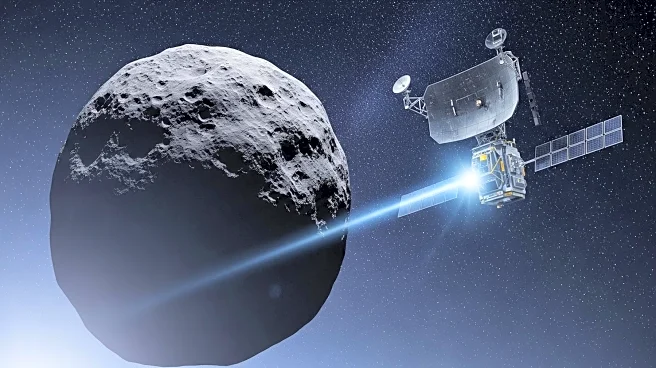What is the story about?
What's Happening?
Scientists have raised concerns about the potential risks involved in deflecting asteroids that pose a threat to Earth. The key issue is the 'gravitational keyhole,' a space region where a planet's gravity could alter an asteroid's trajectory, potentially redirecting it towards Earth. The findings were presented at the Europlanet Science Congress and submitted to the Icarus journal. The research builds on the Double Asteroid Redirection Test (DART), which successfully demonstrated asteroid deflection. The study emphasizes the need for precise calculations to avoid inadvertently placing an asteroid on a collision course with Earth.
Why It's Important?
The ability to deflect asteroids is crucial for planetary defense, protecting Earth from potential catastrophic impacts. However, the risk of miscalculating and causing an asteroid to pass through a gravitational keyhole highlights the complexity and precision required in such missions. This research is vital for developing effective strategies to ensure the safety of Earth while advancing scientific understanding of asteroid behavior and trajectory prediction.
What's Next?
Future missions will likely focus on refining techniques for asteroid deflection, incorporating detailed analysis of asteroid characteristics such as shape, rotation, and mass. Scientists may use spacecraft to gather data on potential threats, although ground-based observations could suffice in urgent situations. The development of probability maps will aid in identifying safe zones for deflection, minimizing the risk of unintended consequences.















